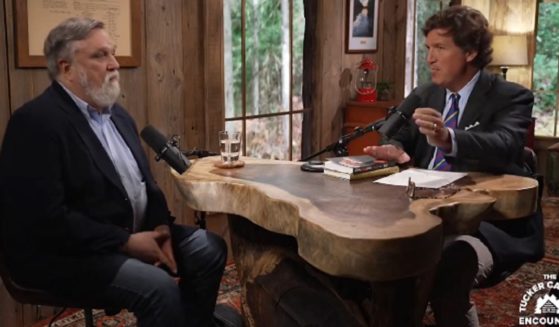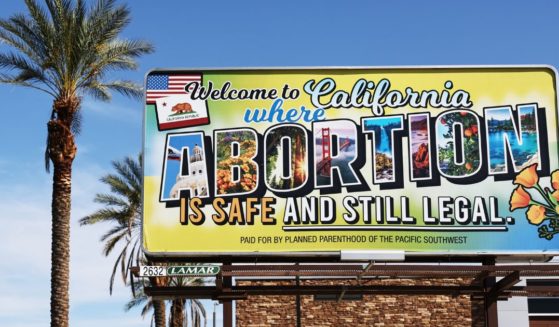Top Ways To Observe National Cancer Survivor's Day
Nearly every one of us knows someone who has been diagnosed with cancer. And thanks to advances in treatment, cancer mortality has seen a dramatic downward trend. That also means a lot of us know someone who’s survived (or is in the process of surviving) the disease.
On the first Sunday in June, we celebrate those who have made or are making it through — both those braving treatment for the first time and those who have put the disease into remission. If you’re wondering how to observe National Cancer Survivor’s Day, here are a few ways you can do it.
1: Spread information about it on social media.
We’re willing to bet there’s a high likelihood you didn’t know about National Cancer Survivor’s Day before this article, and the odds are your friends on Twitter, Facebook, Snapchat and Instagram definitely didn’t.
So, if it matters to you, what better way to get more people involved than spreading the news? The National Cancer Survivor’s Day Website offers a number of graphics you can use on your social media account to spread the news. After all, they can’t take part if they don’t know about it.
It would probably help to know some basic facts about the day, too. For instance, the first National Cancer Survivor’s Day was held on June 5, 1988. Former President George W. Bush helmed one of the 2008 celebrations. Celebrations often include parades, art or other entertainment. Other nations that have held celebrations include Australia, Canada, India, Malaysia and South Africa.
2: Educate yourself on what a survivor is.
Perhaps you’re wondering what a survivor entails, given the insidious nature of the disease. Well, the NCSD’s website spells that out in detail, too.
“A survivor is anyone living with a history of cancer — from the moment of diagnosis through the remainder of life,” the website reads.
“If you’ve just been diagnosed with cancer — you’re a survivor,” it continues. “If you’ve been in remission for 20 years — you’re a survivor. If you’re an adult who had cancer as a child — you’re a survivor. If you’re living with cancer as a chronic disease — you’re a survivor. If you’re currently in active treatment for cancer — you’re a survivor. If you’ve beaten cancer and been declared cancer-free — you’re a survivor.”
In other words, if you’ve had cancer or have cancer, no matter what stage of the journey you may be at, you’re a survivor.
3: Take part in a celebration.
There’s probably an event around you this Sunday, and if you or someone you love is on the physical or emotional journey that is cancer, there’s no better way to show your support than going to one of these happenings. In fact, the National Cancer Survivor’s Day Foundation is “encouraging everyone to take part in” whatever event their community might have. (Or, alternatively, they can organize their own!) “To find the one nearest you, check with your local cancer treatment center, hospital, or American Cancer Society office,” the NCSD’s website advises.
Remember, too, that it’s a day both for celebration and for reflection.
“National Cancer Survivors Day is an opportunity for people to stand with the cancer survivors in their community and make a commitment to address the challenges of cancer survivorship,” NCSD Foundation spokeswoman Laura Shipp said in a news release. “It’s a day to advocate for more resources, research, and legislation to improve the quality of life of cancer survivors and, particularly, to lessen the financial burden of cancer.”
“But it is also a day to celebrate. We’re living in a new era of cancer survivorship. Cancer mortality rates are steadily declining, and cancer survivors are living longer than ever before. And, while we know there is more work to do, we want to give cancer survivors one day to just celebrate life. It may be complicated and challenging and unpredictable, but life after cancer can also be beautiful, meaningful, and inspiring. And that’s something to celebrate.”
4: Educate yourself on issues surrounding survivorship.
If you or someone close to you hasn’t gone through cancer, you probably don’t know the pressing issues that are presented by the disease. However, there’s plenty to worry about aside from just staying alive.
“Thanks to advances in cancer prevention, early detection, treatment, and follow-up care, more people than ever before are surviving the disease. In America alone, more than 15.5 million people are alive today after being diagnosed with cancer,” the NCSD says.
“However, surviving cancer can leave a host of problems in its wake. Physical, emotional, and financial hardships often persist for years after diagnosis and treatment. Cancer survivors are also at greater risk for developing second cancers and other health conditions.”
“The National Cancer Survivors Day Foundation believes that more resources, research, and survivor-friendly legislation are needed to improve the quality of life of cancer survivors — during and after treatment. We urge everyone who participates in National Cancer Survivors Day celebrations to not only recognize those who are living with a history of cancer but also raise awareness of the hardships cancer survivors face beyond treatment.”
5: Make a donation to the National Cancer Survivor’s Day Foundation — or the foundation of your choice.
If you can’t be there, there’s always a donation to the NCSD Foundation, which “supports hundreds of hospitals, support groups, and other cancer-related organizations that host NCSD events by providing free guidance, education, and networking.”
Of course, there are plenty of other cancer foundations out there, too — foundations such as the American Cancer Society, the Cancer Research Institute, Children’s Cancer Research Fund, National Hospice and Palliative Care Organization and others.
Any of these ways, you’ll be making a difference — and taking a stand for the over 15 million cancer survivors in America today.
Truth and Accuracy
We are committed to truth and accuracy in all of our journalism. Read our editorial standards.












